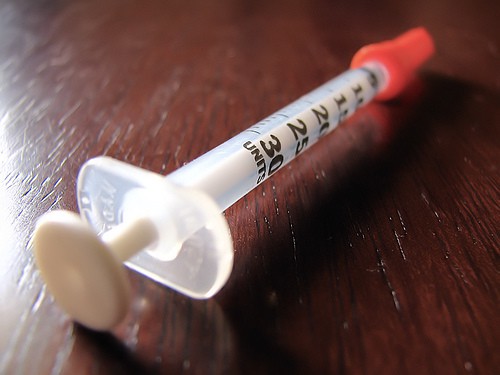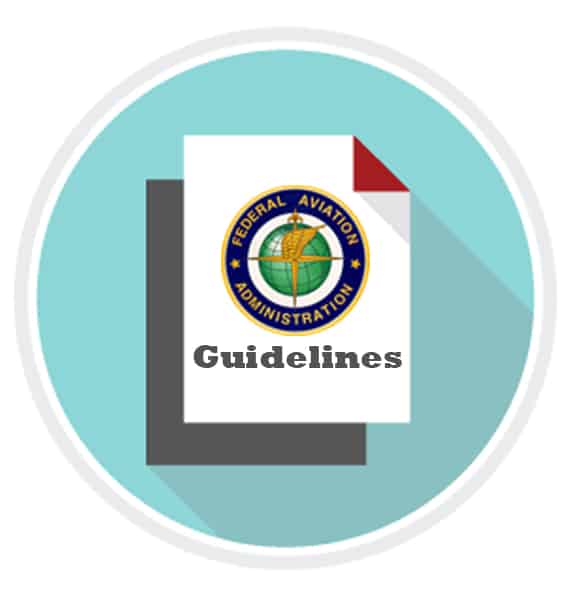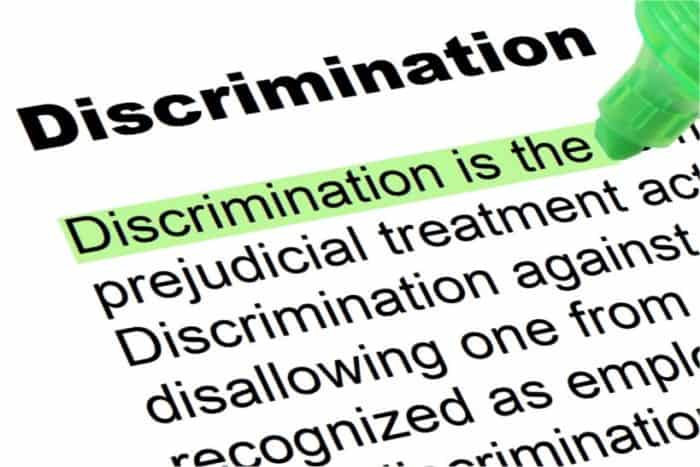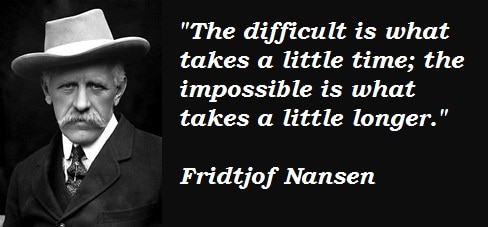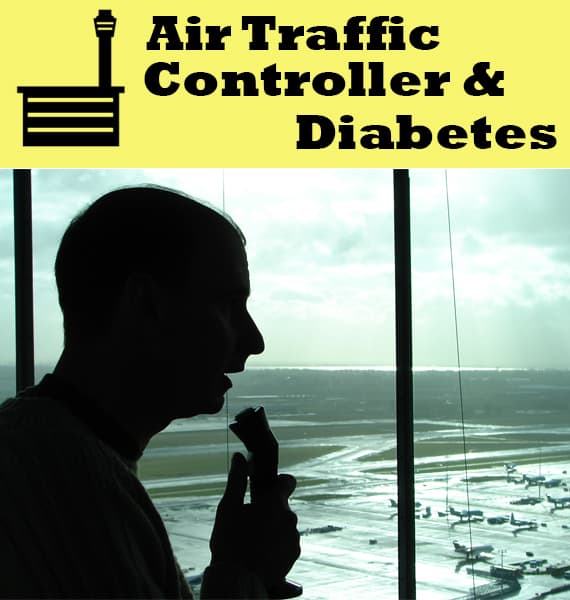
Martin contacted thediabetescouncil.com to inquire what his chances were in becoming an Air Traffic Control Specialist (ATCS) with diabetes. He was diagnosed with Type 1 diabetes and his dream had always been to be in the command center. He was understandably upset about his new diagnosis and wondered how it might affect his future career choices.
In continuation of our series on “can you work in that career with diabetes,” we are taking a look at whether or not one can work as an Air Traffic Controller if they have diabetes. We have already looked at the likelihood of becoming a truck driver or a police officer with diabetes. We have also examined what it takes to be in the military if you have diabetes. Now, we look in depth at a different career.
Air traffic controllers have a monumental task to complete. Their job is to make sure that planes do not collide with one another, and that everyone is safely landed. This is undoubtedly a stressful job situation. There are high level of technology and personal skills that Air Traffic Controllers must use when performing their job duties. Some close calls may happen.
They are, after all, human. They are subject to human error. There are hundreds, maybe even thousands of lives at stake, all resting on the judgment of this one person or group of persons.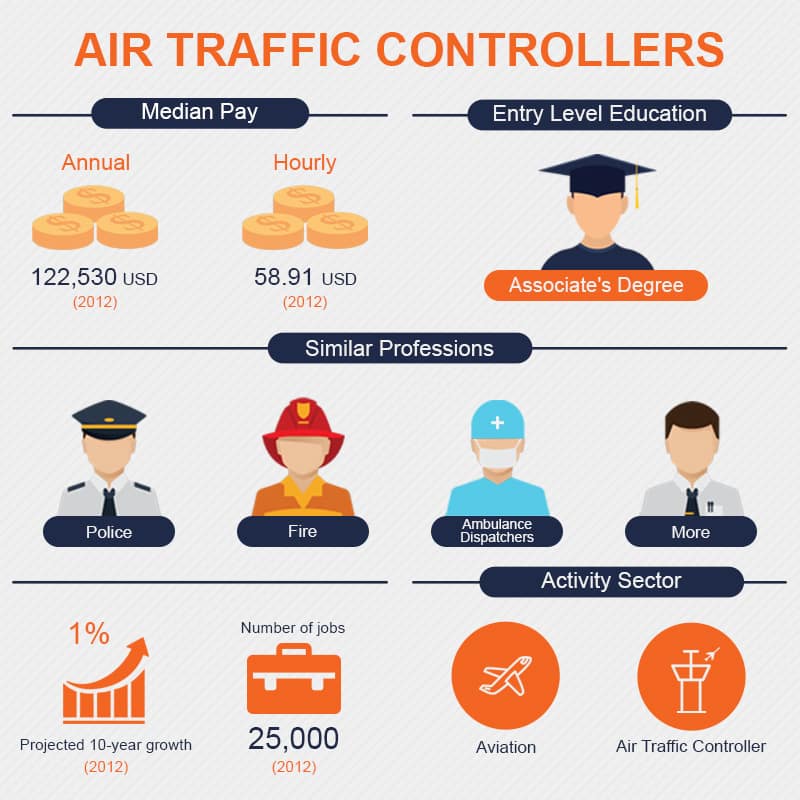
Now let us imagine, if you will, what would happen in the event if an Air Traffic Controller is having a seriously low blood sugar while on duty. He will be sweaty, shaky, confused, agitated, and combative. He will be unable to concentrate on performing an adequate job, and therefore two planes may crash as a result of his low blood sugar. This is why the FAA (Federal Aviation Administration) is extremely cautious about allowing someone with diabetes, especially someone who takes insulin, to work in an Air Traffic Control position.
It is simply a safety issue. What about someone with very well controlled diabetes who is taking insulin? If they are fully aware of their low blood sugar symptoms, are capable of treating them with carbohydrates in time and have their A1C within an acceptable range, can they be considered for an Air Traffic Controller job? Let us take a look at the criteria.
Are You Interested In More Diabetes Articles? Check these out:
Contents
Can I direct air traffic if I am taking insulin?
It is possible that you may very well be able to direct air traffic if you are taking insulin. As with many other careers that have previously been inaccessible to people with diabetes, there are now case-by-case medical evaluations that are conducted for candidates interested in the field.
Even if you meet the criteria, you must demonstrate that your diabetes has been well managed for at least 6 months before applying and have achieved an appropriate level of control. Training to become an Air Traffic Controller is very expensive, therefore one must ensure that they meet all of the criteria before spending the time and resources towards it.
Normally, the waiver process for the FAA is not considered controversial. There are many other chronic medical conditions that could render you unsafe to perform Air Traffic Control duties. As long as a person can show that their chronic condition does not cause problems with safely performing their duties, they will be issued a medical certificate to that effect.
People with diabetes requiring insulin are considered high risk when working as an Air Traffic Controller. It can be controversial to certify these persons for the position. There have been approximately 20 Air Traffic Controllers over the past two decades who are certified for Air Traffic Control. Because several episodes of hypoglycemia among these people were a concern, their medical waivers were pulled.
In 2011, the FAA convened a team of endocrinologists to come up with ways to know which insulin requiring persons would be at risk of safety issues in the tower. The research would allow for each individual to be evaluated and find out whether or not they safely perform the duties of Air Traffic Controller. The team of endocrinologists determined that it would be possible for someone with diabetes who requires insulin to work in Air Traffic Control, as long as they meet certain conditions. Ten of the twenty Air Traffic Controllers with diabetes were allowed to resume their duties as a result of this team’s findings.
FAA guidelines for insulin requiring diabetes
Let us look at all of the guidelines and conditions that the FAA has outlined:
- absence of complications of diabetes that could cause problems with the ability to safely direct air traffic
- severe low blood sugars with seizures or loss of consciousness
- severe low blood sugar requiring the assistance of another person in the last 5 years
- hypoglycemia unawareness (severe low blood sugar with no warning signs)
Each Air Traffic Controller is required to provide:
- all hospital records
- report of any accidents related to diabetes
- 2 A1C’s in the last 3 months
- Ophthalmologist’s report confirming absence of diabetic retinopathy and report of ophthalmology evaluation once yearly
- absence of peripheral neuropathy examination report
- Report of insulin regimen
- Report related to diet used to control diabetes
- Evidence of Diabetes Self-Management Education (DSME)
- Specialist evaluation every 3 months
In addition, each Air Traffic Controller must:
- own, carry and operate a digital whole glucose monitor with memory
- test their blood sugars 30 minutes before working, and every 2 hours
- work with another person, and not alone
- stop work if blood sugar is less than 60 mg/dl, treat low blood sugar with carbohydrate, recheck blood sugar in 30
- minutes, and repeat until blood sugar is greater than 100 mg/dl
- for blood sugar 300-400 mg/dl, an extra insulin dose may be given
- for blood sugar over 400 mg/dl, stop work and take correct action1
For initial employment, it ’is good to know that you must have:
- vision - corrected 20/200 vision or 20/20 without correction, near visual acuity of v=50 without correction or v1.25 with correction; normal color vision, normal central and peripheral vision fields, absence of need for medication for intraocular pressure
- hearing - no hearing loss in either ear of greater than 40 decibels in the 4,000 HZ range
- cardiovascular – no heart disease as evidenced by resting and post-exercise electrocardiogram; blood pressure of greater than 160/100 for a person over 50 (there is a stricter guideline for those under 50).
- neurological – no history of seizures or neurological disorder
- musculoskeletal – no history of back problems or deformity
- general medical – no diagnosis of diabetes
- psychiatric – no psychosis or neurosis
- substance dependency – absence of dependency on illegal drugs, narcotics or alcohol*2
On top of the requirements listed above, there are many retention requirements that must be followed. ATCS must re-qualify with a new medical examination every year, and meet all requirements with the review of systems listed above. Illness or injury between the annual medical evaluations is cause for additional evaluations to determine fitness for air traffic control duty.
The controller will be looked at based on the degree of control they have over their diabetes, and the presence or absence of a need for insulin injections or other medications that may place the person at risk for low blood sugar. There must be absence of further complications. Medical clearance is through special consideration, because diabetes is on the list of exclusions for the position of Air Traffic Control Specialist3.
For a brochure outlining the Terminal and En Route Air Traffic Control Positions Medical Standards, click here.
Why are there all these regulations?
With the duties that an ATC performs, it is obvious that this is a highly skilled and stressful position. What about being an Air Traffic Controller makes it necessary to screen persons with diabetes so carefully? This may seem obvious, but let us look at the requirements for the position. According to OPM (US Office of Personnel Management), an Air Traffic Control Specialist is responsible for, “controlling aircraft operating en route along the airways to assure proper separation and safe and expeditious movement of such aircraft. This specialization also requires:
- skill to control aircraft operating at high speeds over great distances
- skill to arrange air traffic in patterns that assure maximum safety and minimum delay at points where such aircraft are ‘handed off’ or transferred to other facilities or other sectors within the center; and
- judgment to estimate when and where traffic congestion will build to a point that necessitates changing patterns, and to plan accordingly”4
Reading the position description, it is understandable why diabetes could pose a risk and make it unsafe to perform the duties of an Air Traffic Control Specialist. This is especially true when there is medication that could drop the blood sugar low during a shift when the utmost concentration is required, and lives are ultimately at stake.
Medical clearance granted, now what?
Now that you have jumped through all of the special medical clearance hoops and you have been granted your medical clearance waiver, what is expected of you while you are on the job to continue holding the special medical clearance? For starters, you are expected to have a medical evaluation and new A1C reports every 3 months. You are also required to follow the guidelines for managing your blood sugars during work hours.
You must adhere to these guidelines exactly as set forth. Air Traffic Organization (ATO) distributes information to help supervisors and other staff to identify low blood sugar reactions in an Air Traffic Control Specialist.This helps them to know what to do in the event that an ATCS with diabetes has a severe hypoglycemic event.
The manager should be aware of what the requirements for blood glucose testing are as outlined in “the guidelines for blood glucose testing during working hours.” They should be periodically checking to confirm that the employee has documented blood sugars according to the guidelines, and is keeping the blood sugars in the specified range for safety while performing air traffic controller duties. They are required to report if the employee is not performing blood sugar checks or documenting them appropriately.
Additionally, the Air Traffic Controller Specialist with diabetes should not perform duties without at least one other Air Traffic Controller present. The employee working with the person with diabetes must also be aware that the ATCS is taking insulin injections.
A glucose source must be carried with the ATCS at all times. He or she must always carry enough glucose testing supplies, insulin and syringes, or insulin pump supplies if applicable. Nothing carried or used should be past the expiration date.
If the ACTS fails to comply with the guidelines, and blood sugars are out of control, the ATCS will be recommended to be incapacitated. This means that they are unable to perform their safety related duties and are removed from the position of ATCS. They may be reassigned to another position or their employment may be terminated.
It is the responsibility of the ATCS to report any episodes of low blood sugars, any and/or all emergency room visits and hospitalizations, and any other significant illness. Anything that makes it likely for loss of blood sugar control, such as severe illness, is grounds to have the ATCS removed from safety related duties.
ATCS with diabetes is given approximately 10 minute breaks in order to check their blood sugars. As previously stated, they are required to check their blood sugars before their shifts, and keep checking them every 2 hours while on duty. Severely low (less than 60 mg/dl) blood sugars require that the ATCS eat an appropriate snack and recheck blood sugars until they are greater than 100 mg/dl. They are removed from safety related duties until blood sugar control is regained.
For severely high blood sugar of greater than 400 mg/dl, they should take insulin, perform exercise, or wait until blood sugars are in acceptable range. They will not be allowed to resume working until their blood sugar is less than 400 mg/dl. If blood sugar checks are delayed due to duties, the ATCS is to consume a snack and check blood sugar when time permits. They should also stop work if blurred vision occurs.
At the beginning of the shift, ATCS with diabetes must clearly identify themselves to the manager on duty. They should let them know that they have a glucometer, and a quick source of sugar if needed. Managers will be observing them during their shift periodically. Twice a week, management should review the ACTC’s blood sugar logs. Managers should be familiar with the signs of low and high blood sugars5.
Fired as an ATCS with diabetes? Can you sue for discrimination?
In the land of litigation, sure you can! But you might not win. A precedent case law from the Dyrek v. Garvey case with the US Court of Appeals found that if one is not self-managing their diabetes according to the FAA guidelines, and not turning in reports in a timely manner, they can be fired or reassigned from their duties as an ATCS. The court found for the defendant, the FAA, despite the plaintiff’s charges that the FAA had violated his rights and discriminated against him due to his diabetes.
The FAA strictly follows their rules and regulations in relations to diabetes and Air Traffic Controllers. They provided the court with extensive documentation that demonstrated that they had made attempts to get the required paperwork from the plaintiff. They also provided documentation showing that the plaintiff did not have his blood sugars in control, nor did he follow all of the guidelines for diabetes requiring insulin on the job. However if your case is different, if you followed all the guidelines, but still feel that you were discriminated against, you may then have a case worth taking to court6.
What if you have Type 2 diabetes and take pills? Is it hard to get in?
You will need to meet the guidelines as specified above under “FAA Guidelines for Insulin-requiring diabetes” section. In other words, your diabetes must still be well managed. There are many medical conditions that could render you unfit for Air Traffic Control, and diabetes is one of them. However, you can be cleared for air traffic control safety related duties with any kind of diabetes with appropriate medicals and documentation.
What if I cannot continue to perform air traffic control safety related duties due to my diabetes being out of control?
It is possible that you could be reassigned to a different position if there is an opening elsewhere. If there are no positions open, you are likely to receive a severance..
Do I have to have a perfect A1C and perfect control of my diabetes to work as an Air Traffic Control Specialist?
No, your A1C must be less than 9.and f your blood sugar falls below 60 mg/dl, or above 400 mg/dl, you will have to be removed from your duties until your blood sugar is in an acceptable range to perform your safety related duties. You cannot have an existing long term complications of diabetes, or hypoglycemia unawareness to work as an Air Traffic Control Specialist. See above under FAA guidelines for more information.
You note that the a person might be disqualified if they have had "severe low blood sugar requiring the assistance of another person in the last 5 years. "As my niece, Katie Doyle, who has diabetes, pointed out when I sent her your piece, this point could be more specific. Does the FAA state that point so vaguely? Katie thought that a more reasonable way of framing it would be "must not have needed to receive extraordinary treatments (such as Glucagon) from another individual to treat a low blood sugar."
Because the way she read it, maybe she'd be unqualified because someone gave her a juice box when her blood sugar was low. Question sent by Joseph A. McCartin, author of Collision Course: Ronald Reagan, the Air Traffic Controllers, and the Strike that Changed America.
We included a link to this answer but it was not clear. We can't rewrite regulations, however I reached out to Dr. Nicholas Lomangino, MD (Medical Specialties Division) at FAA and here is what he had to say:
The FAA reviews each case based on individualized assessment. With respect to the question, the FAA is mandated to look for and mitigate risks to the National Air Space (NAS). In Insulin treated Diabetes Mellitus, the important risk criteria is not how the hypoglycemic event was managed but did a hypoglycemic event occur in the first place. The paraphrased description is intended to define an aeromedical hazard in the most generalized form. I hope that answers your question.
Over to you
We invite our readers to let us know what they think about this article in the comments section below. After learning about the process for becoming an ATCS with diabetes, would you still like to pursue your dream of becoming an Air Traffic Controller? Or have you successfully made it into an Air Traffic Controller career and would like to encourage others to not give up? We would love to hear your story about how you persevered.
I will end this article with a great quote from Fridtjof Nansen:
This article was reviewed for accuracy by Dale Wright at National Air Traffic Controllers Association.
So this article was everything you need to know about being a air controller with diabetes. If you are a air controller please share your stories down below. Stay healthy and safe!
TheDiabetesCouncil Article | Reviewed by Dr. Sergii Vasyliuk MD on June 10, 2020
References
- https://www.faa.gov/other_visit/aviation_industry/designees_delegations/designee_types/ame/fasmb/editorials_jj/insulindependency/
- https://www.leftseat.com/atc/standard2.htm
- https://www.leftseat.com/atc/
- https://www.opm.gov/policy-data-oversight/classification-qualifications/general-schedule-qualification-standards/2100/air-traffic-control-series-2152/
- http://www.faa.gov/documentLibrary/media/Order/FAA_Order_3930.3B_Chg_1.pdf
- http://caselaw.findlaw.com/us-7th-circuit/1046808.html


